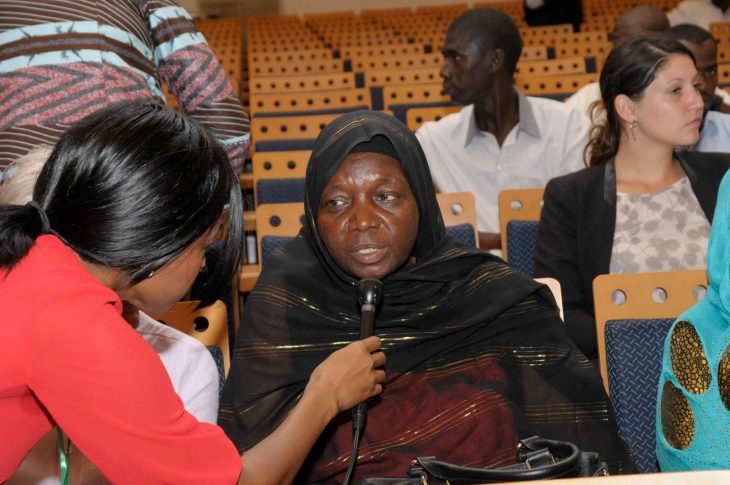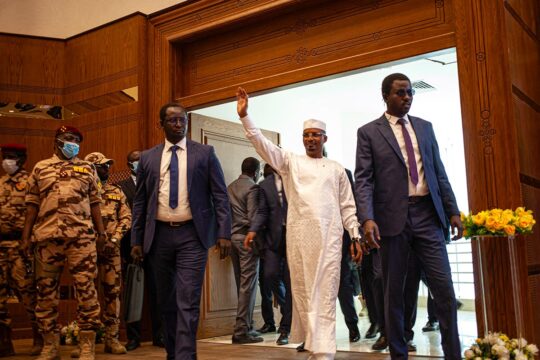For the second year running, rights groups TRIAL, FIBGAR, ECCHR and the International Federation for Human Rights (FIDH) are publishing an annual report on universal jurisdiction, entitled “Make way for Justice”.
Under the universal jurisdiction principle, States can under certain conditions prosecute and try alleged perpetrators of international crimes regardless of where the crimes were committed and the nationality of the suspects and victims. “Make Way for Justice” (second edition) looks at 12 countries -- including Sweden, Chile, France and Senegal – that have opened investigations, started judicial proceedings or tried suspects using the principle of universal jurisdiction. It also looks at setbacks, such as the termination of several investigations in Spain. Valérie Paulet, a lawyer for TRIAL and author of the report, explains the scope and importance of universal jurisdiction.
JusticeInfo: Why did TRIAL take this initiative?
Valérie Paulet: “Make Way for Justice” meets a need -- that is, the need of law practitioners, NGOs and human rights defenders to better understand universal jurisdiction. If this potentially powerful tool is to become a real means of fighting impunity, it must first be widely understood. Universal jurisdiction is at the heart of action by several NGOs, including TRIAL, the European Center for Constitutional and Human Rights (ECCHR), Fundación Internacional Baltasar Garzón (FIBGAR) and FIDH. This principle allows us to denounce to national or foreign authorities suspected perpetrators of international crimes who are on their territory, so that investigations can be opened. The report that we are publishing jointly for the second consecutive year is unique. To date it is the only publication that provides an overview.
JusticeInfo: What progress has been made on universal jurisdiction?
VP: In our previous report, we looked at 37 cases, in which there had been developments in only 12, such as an arrest, judicial procedures or a judgment in the course of the year. In 2015, despite numerous obstacles, there were important developments in 27 of the 40 cases we looked at. A total of 6 suspects were convicted this year under the universal jurisdiction principle. And there were no acquittals. Progress is undeniable. It is clear that universal jurisdiction is asserting itself more and more each year as the only means of justice for thousands of victims. This is the case in the Syrian conflict, where in the current absence of an international mechanism to try the numerous crimes committed, universal jurisdiction is the only means of getting justice. Last year, for example, a Swedish court convicted a Syrian rebel to five years in jail on the basis of universal jurisdiction. An appeal is ongoing. Then after Germany in 2014, France opened a judicial investigation against the Bashar al-Assad regime for crimes against humanity, war crimes and torture. Another major advance is the international spread of universal jurisdiction. It is no longer a tool used only in the West. Argentina is continuing the investigation it opened in 2014 into crimes committed under the Franco regime in Spain. A first exhumation was carried out in January 2016 at the request of Argentinian judicial authorities. And Chilean judicial authorities have used universal jurisdiction to denounce arbitrary arrests of political opponents in Venezuela. Most importantly of all, Senegal is trying former Chadian President Hissène Habré.
JusticeInfo: Which are the most symbolic cases?
VP: The highlight of 2015 was the long-awaited trial of former Chadian dictator Hissène Habré conducted in Senegal. This is the first trial ever to be opened in Africa under the principle of universal jurisdiction. Hissène Habré was president of Chad from 1982 to 1990. During his rule, he allegedly ordered the deaths of thousands of people. When he was ousted from power, he fled to Senegal, but his victims’ 16-year struggle finally led to him being charged with crimes against humanity, war crimes and torture. His trial opened in Dakar in July 2015. Some 2,500 victims have already testified about the atrocities to which they were subjected.
JusticeInfo: Universal jurisdiction is often criticized. Doesn’t it have its limits?
VP: The main thing limiting universal jurisdiction is that States are supposed to apply it but they also fear such cases might undermine their economic or diplomatic interests. 2015 saw the termination in Spain of several investigations. This followed changes to the law on universal jurisdiction that came after a case implicating top Chinese officials. Similarly France has recently modified its laws on cooperation with Morocco, following a case implicating the Moroccan secret service chief in torture. And finally, State funds allocated to fighting impunity remain very insufficient. Out of 28 European countries, only 8 have set up war crimes units to fight international crimes.
States cannot duck their responsibilities, though. They have an international obligation to pursue perpetrators of international crimes relentlessly, over and above political considerations. Our “ Make Way for Justice” report is also there to remind them of that.







